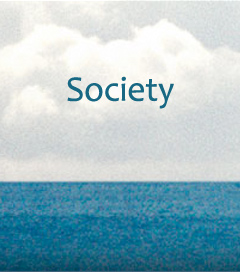A Country Can Best Heal When it Acknowledges Past Injustices says Sociologist
What would happen if you lost your land and ended up as a second-class citizen in your own country? asks American medical sociologist Robert Bartholomew in an opinion piece for Psychology Today. “New Zealand is a land where people openly boast of having the best race relations in the world with their Indigenous inhabitants, the Māori. Over the past century, this myth has been reaffirmed by the country’s politicians and taught in its history books.”
“The statistics tell a different story,” Bartholomew writes. “Māori continue to trail the European population in every major social indicator. Māori men and women die several years younger than their non-Māori counterparts, have higher rates of illness, infection, and psychiatric disorders, have significantly higher mortality rates for stroke, heart disease, and cancer, and are two times more likely than non-Māori to forego collecting a prescription due to the cost. On average, Māori income is lower, employment is mostly in low-paying primary and semi-skilled jobs, and housing quality is poorer. Māori students are more likely to be suspended from school or expelled, increasing the prospect of juvenile criminality.
“Those who question the need for settlements, scholarships, and university entrance quotas or do not think Māori have had it bad in recent times, should look no further than the racial segregation that took place in the South Auckland town of Pukekohe from 1925 to the early 1960s,” Bartholomew writes.
The author outlines an era from 1925 to the early 1960s in Pukekohe whereby Māori were denied civil and economic rights, were physically segregated, and deprived of status and decency. “It is important for New Zealanders to know the story of Pukekohe. It is a reminder of the obstacles faced by Māori. How come most Kiwis have never heard of Pukekohe? Why isn’t the story taught in Kiwi schools?
“The true test of a civilised country is its willingness to acknowledge past wrongs. The best time to address them is now. Confronting injustice and acknowledging past wrongs is part of the process of healing for the country. It is time to break the taboo and have a national discussion about race. In the light of recent global events surrounding the death of George Floyd, the time has never been better.”
Robert Bartholomew, Ph.D., is an American medical sociologist. He has written on an array of topics ranging from human social and cultural diversity, to mass psychogenic illness, social delusions, popular myths and folklore, moral panics, fads, crazes, the history of tabloid journalism, and the history of the paranormal. He is author of Outbreak! The Encyclopedia of Extraordinary Social Behavior (Anomalist Books, 2009) with historian Hilary Evans, and American Intolerance: Our Dark History of Demonizing Immigrants (Prometheus, 2018). A research fellow with the Center for Inquiry in Amherst, New York, he is an honorary member of the Department of Psychological Medicine at the University of Auckland, and teaches history at Botany College. The author of 16 books and dozens of articles in peer-reviewed journals, he holds a doctorate in sociology from James Cook University in Queensland Australia, a Masters in American sociology from the State University of New York at Albany, a Masters in Australian sociology from Flinders University of South Australia, and a BA in Communications from The State University of New York.
Original article by Robert Bartholomew, Psychology Today, June 14, 2020.
Image taken from a TVNZ interview, February 2020, with Robert Bartholomew.













